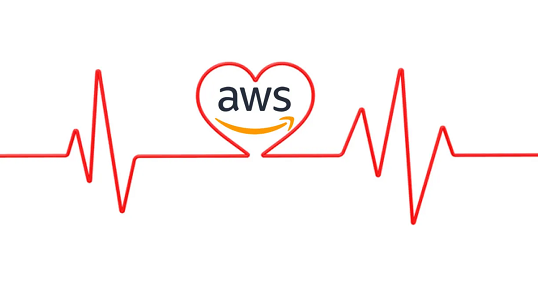The lack of data standardization, the use of different EHRs or different versions of the same EHR with customization nuances, and the loss of key employees involved in building or customizing data analytics platforms are key data integration challenges on the path to Value-Based Care (VBC) for Accountable Care Organizations (ACOs), according to the National Association of ACOs' 2024 report, "ACO Drivers for Success." The report highlights that today there are myriad data analytics solutions, which adds complexity to understanding who can truly deliver what an ACO needs and to properly vetting vendors.
Data Integration Challenges for ACOs
Effective use of data, including collecting, analyzing, and turning it into actionable information for clinicians, is critical to the success of ACOs in VBC. Forming a complete picture of population health is one important aspect of this task. To achieve this objective, ACOs bring together data from claims, EHRs, state health exchanges, hospital EDT feeds, eligibility verification systems, and more sources.
ACOs must ensure they are receiving the right data elements in a timely manner, figuring out how to best filter and combine disparate data sets, and turning data into digestible, actionable information to focus clinicians.
However, the lack of data standardization makes it hard to seamlessly share data for VBC.
Having ACO participants on different EHRs is also a challenge for many, but for those using the same EHR, there are still hurdles due to different versions of the same EHR or customization nuances.
ACOs also struggled to find and retain high caliber staff who are adept at managing data to support the ACO. Staff turnover creates knowledge gaps, especially when losing key employees involved in building or customizing platforms.
Benefits of Data Integration for ACOS
Creating a centralized analytical system through data integration allows ACOs to gradually improve the accuracy of analysis and automate processes. ACOs, despite spending several years developing a custom analytical platform that consolidates data from EHRs, claims, and other sources, are now happy with their strong ability to provide physicians with precise data to support clinical decisions.
Data integration enables the effective identification of rising-risk patients, preventing their conditions from worsening, reducing treatment costs, and improving patient outcomes. Data from EHRs, claims, and lab systems for risk stratification allows ACOs to focus on rising-risk patients rather than solely on the sickest patients whose conditions are harder to change.
Data Integration to Support Leadership Decisions and Physician Practices
Integrating data from multiple sources enables analytics teams to provide leadership with accurate, comprehensive reports for informed decision-making at the management level. Some ACOs even give analytics an equal role in leadership alongside finance and operations.
Reliable data integration ensures the timely delivery of information relevant to individual physicians, increasing trust in analytics and encouraging its use in clinical practice. Physicians may receive regular reports that include key performance indicators tied to ACO goals. This allows them to focus on specific improvements in their practice.
Data Integration to Optimize Treatment Approaches
Integrating data on costs and clinical outcomes helps identify economically inefficient treatment methods and implement alternative solutions that reduce expenses without compromising quality. Some ACOs report discovering that patients were receiving expensive injectable treatments for anemia. Data comparison revealed that an alternative method was equally effective but significantly cheaper, reducing treatment costs.
Data Integration to Reveal and Address Social Determinants of Health
Integrating social data with medical data helps identify and address barriers preventing patients from accessing necessary care. Some ACOs reported that their analysts identified rural patients missing dialysis appointments due to a lack of transportation, leading to severe complications. They were able to implement targeted interventions by providing transportation services, which resolved the issue.
Data Integration to Detect and Prevent Fraud
Integrating data from various providers and insurers helps identify anomalies and cases of fraud, saving significant resources for ACOs. The Institute for Accountable Care analyzed Medicare data and discovered a 20-fold increase in catheter expenditures over two years. This led to an investigation and a reduction in unjustified expenses.
Data Integration for Accurate Risk Scoring
Risk data plays a critical role in financial calculations and care management.
The ability to prevent MSSP risk scores from declining by stratifying risk to identify patients with the highest needs, allocating resources accordingly, focusing on rising-risk patients to prevent them from getting sicker, and prospectively risk-stratifying patients (based on characteristics such as past patterns of high utilization, recent inpatient stays, frequent ED visits, predicted high spending, risk of hospitalization, and multiple chronic conditions) requires combining data from various systems.
Without high-quality data integration, such processes would be extremely difficult or impossible.
How Belitsoft Can Help
Belitsoft is a data analytics software development and consulting vendor that helps data analytics vendors support ACOs in reaching their goals by providing engineering and consulting services to:
- Integrate disparate data sources
- Develop analytic platforms and data warehouses
- Automate reporting, moving away from manual Excel reports
- Create visualization through tools like Tableau, making raw data from various payers comparable across traditional Medicare and Medicare Advantage and much more
- Enrich data with benchmarking tools, grouped clinical data, and flagged avoidable ED visits and much more
Rate this article
Recommended posts
Portfolio

Our Clients' Feedback








































Belitsoft has been the driving force behind several of our software development projects within the last few years. This company demonstrates high professionalism in their work approach. They have continuously proved to be ready to go the extra mile. We are very happy with Belitsoft, and in a position to strongly recommend them for software development and support as a most reliable and fully transparent partner focused on long term business relationships.
Global Head of Commercial Development L&D at Technicolor